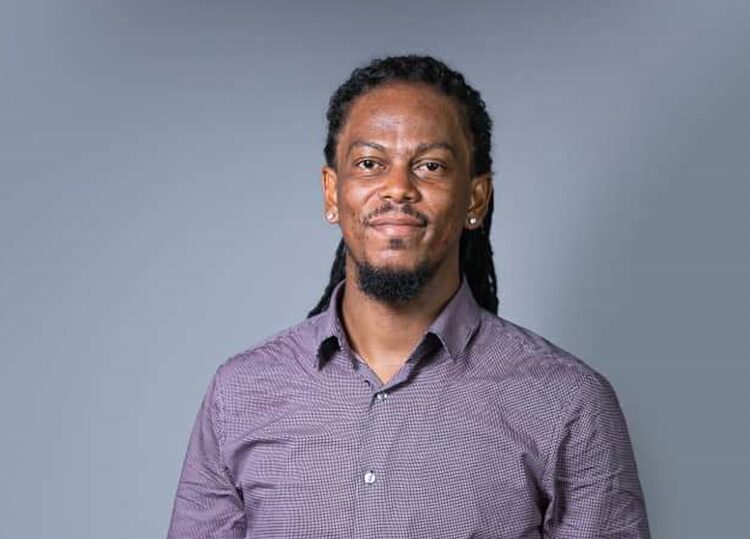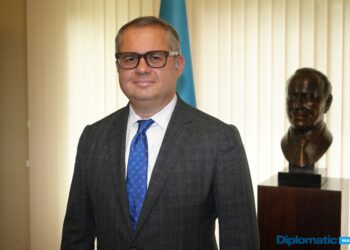We Must Find Motivation in Small Things…
George Patrick Henriquez Cayasso leads as Nicaragua’s first Black presidential candidate. At 39, this Kriol leader from the Caribbean coast holds a master’s degree in gender and ethnicity, with 20 years working for Afro-descendant and Indigenous rights.
Facing pressure from the current regime, Henriquez stays active. He created the Afro-descendant and Indigenous People Platform, speaks on human rights worldwide, and runs two radio shows focused on community change.
His work aims to reshape Nicaragua through bilingual education, land rights, and local autonomy. From meetings in Washington D.C. to grassroots organizing, Henriquez represents voices from the Caribbean coast that haven’t been heard before.
Want to learn more about Henriquez’s vision for Nicaragua? Read our full interview below on Young and Diplomatic, where he discusses everything from personal safety concerns to his hopes for the country’s future.
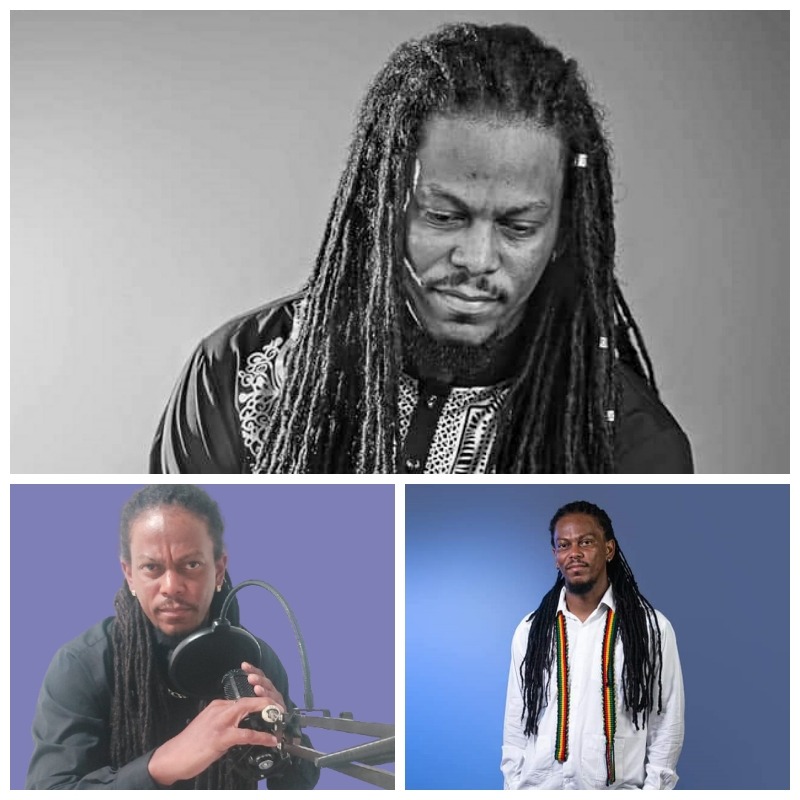
What inspired you to begin this journey, and how has your understanding of community evolved over the years?
From an early age, I was curious about our stories—those not portrayed in history books because they never reflected people who looked like me or recognized the heroism they contributed to the economic, political, and cultural development of our country. This new knowledge, gained while researching and reading about global Black leaders and the fight against racism and oppression, made me both knowledgeable and frustrated. I soon realized that this fight was one I needed to carry forward.
How has your understanding of community evolved over the years?
A community includes not only the good and positive aspects but also the bad—things that sometimes go unseen. People in our communities have endured lives of struggle, resilience, resistance, and pain, which have broken many people along the way. For some, this leads them to turn their backs on their communities and focus on individualism, even though their actions, aimed at personal welfare, inevitably impact everyone around them, including their families and future generations. In a community, what affects one person directly affects others indirectly; this interconnectedness defines us.

As Nicaragua’s first Black presidential candidate, what does this milestone mean to you personally and for the Afro-descendant and Indigenous communities you represent?
Personally, it was frightening, challenging, and life-threatening. But it also opened my eyes to the realities of politics in Nicaragua. Seeing it from the inside is far different from observing it as a spectator. One of the main challenges I faced was being seen as unfit simply because of my socioeconomic background. Being Black and from a poor background, I did not fit into the mold of traditional politicians in Nicaragua, and this did not sit well with them, especially as my candidacy gained popularity.
For many people on the Miskitia Coast of Nicaragua, my nomination was met with skepticism. The common reaction was: “Is this real?” “Is he serious?” “Who does he think he is?” It was the first time someone like me openly ran for the presidency. However, as people heard me speak in interviews, learned about my academic background, and became aware of my previous work, they started to support me.
Facing discrimination and racism was heartbreaking. Some people said things like, “I’d rather vote for Ortega than see a Black man as president,” or “He must have been on drugs when he decided to run.” They found reasons to oppose me, from my dreadlocks to doubts about my Spanish fluency. I was clear: I was Black and proud and would not cut my dreadlocks or compromise my identity for any political office.

Can you share some of the initiatives you are most proud of and their impact on the Mosquitia Coast communities?
I’m proud of our efforts to educate people about their rights and to raise awareness of structural violence and racism. By keeping these issues on the national agenda, we’ve made significant strides in giving a voice to Afro-descendant and Indigenous communities.
We’ve also emphasized the importance of organizing and collective action. We can influence policy decisions and bring about real change by empowering communities to come together.
Another important initiative is promoting intercultural bilingual education. By teaching children in their native languages, we strengthen their cultural identity, boost their self-esteem, and improve their academic performance.
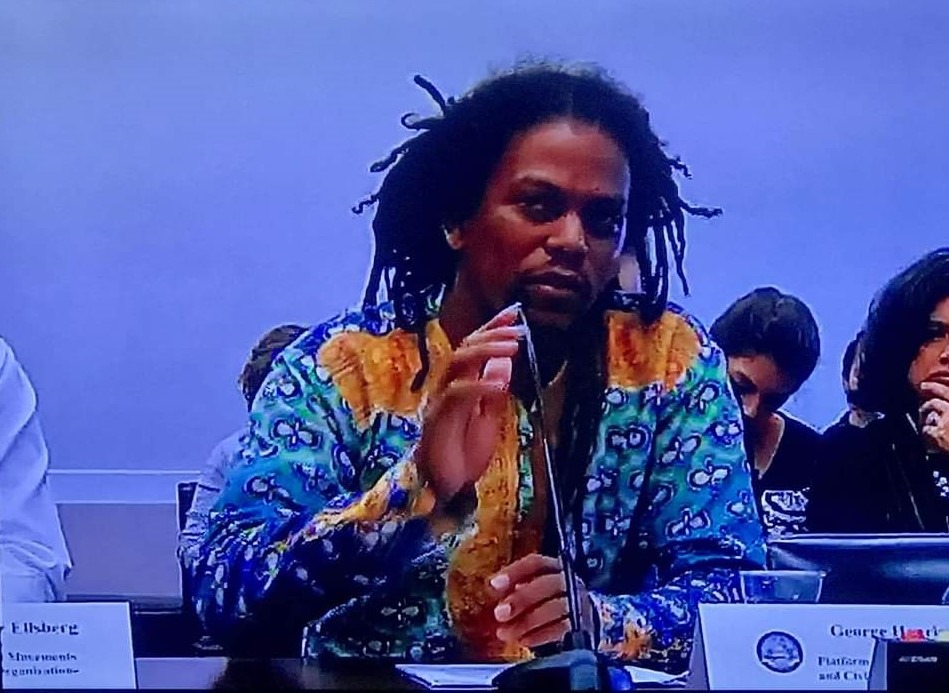
How have you navigated challenges, particularly the surveillance and harassment you and your family have faced?
The constant surveillance and harassment have taken a toll on my mental and physical health. I’ve experienced stress, anxiety, and fear. To cope, I’ve had to develop strategies to stay safe, such as being mindful of my surroundings and limiting my social media activity. While some might call it paranoia, it’s a necessary precaution in the face of political persecution.
You founded the Afro-Descendant and Indigenous Platform. What do you hope to achieve through this platform, and what issues are you working to bring to international attention?
Our platform aims to amplify the voices of Afro-descendant and Indigenous communities. We’re working to address issues such as land rights, environmental justice, and cultural preservation. We also seek to promote intercultural bilingual education and to challenge systemic racism and discrimination.
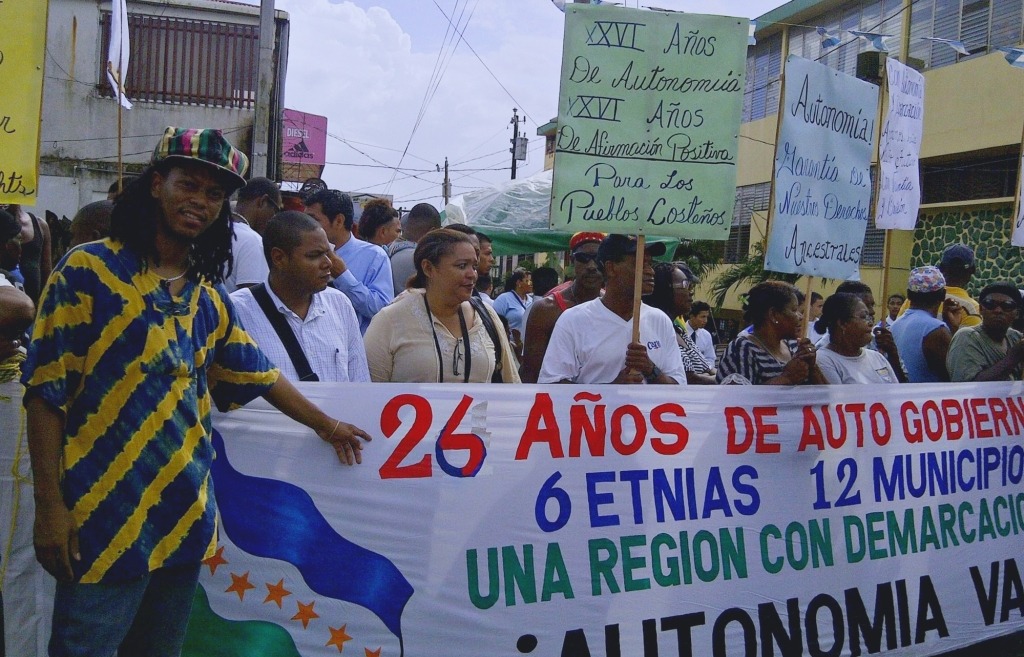
Intercultural bilingual education is a priority in your work. How does this form of education contribute to the autonomy and empowerment of Afro-descendant and Indigenous students?
Intercultural bilingual education strengthens cultural identity and instills pride in ancestral roots and traditions. Learning to read, write, and express oneself in one’s native language enhances comprehension and fosters a sense of safety. This familiarity makes it easier for children to engage with content in other languages.
Political activism comes with sacrifices. What has kept you motivated, despite constant threats and obstacles from authorities?
We must find motivation in small things: a compliment, a message of congratulations, or a smile. I’m driven by the understanding that progress is a process. Though I often feel tired, demotivated, and exhausted, I continue because I’ve been speaking out against oppression since a young age, and it has become second nature.

In addition to your activism, you host the programs Demarcation Now and Sex on Air.
Both programs keep me connected to the people. They are educational and conducted in our own language, which is vital given that 99% of media coverage in Nicaragua is in Spanish, even though Spanish is a second language for us. This highlights the importance of intercultural bilingual education beyond the classroom.
What message would you like to share with young people in Nicaragua and beyond who are facing similar challenges?
Remember that your voice matters. Don’t be afraid to speak out against injustice and inequality. Seek out mentors and allies who can support your journey. Stay resilient, stay focused, and never give up on your dreams.
It’s important to understand that change takes time. Be patient, be persistent, and be prepared to face challenges. By working together, we can create a more just and equitable world.

What changes would you like to see if given the opportunity?
I envision a Nicaragua where the rule of law is upheld and everyone has equal access to justice, freedom of speech, and freedom of assembly. I dream of a country where Indigenous and Afro-descendant communities have autonomy and control over their destinies.
Ultimately, I want to see a Nicaragua where every individual, regardless of race, ethnicity, or socioeconomic status, can thrive.

